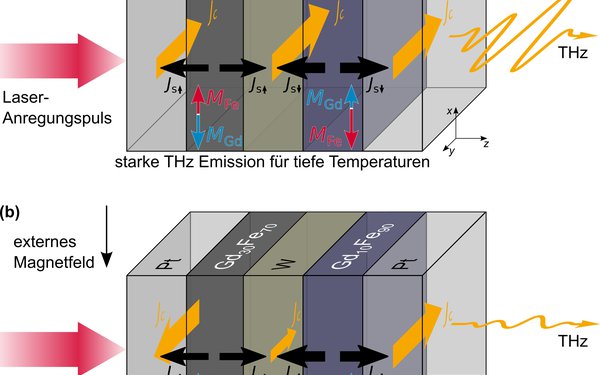Experimental Physics IV
News
Young physics student Lea Kolb took part in the Nobel Laureate Conference in Lindau.
The young physics student Lea Kolb from the workgroup for organic semiconductors at the chair Experimental Physics IV took part in the 73. Nobel Laureate Conference in Lindau.
[Experimental Physics IV]

Emmy Noether Junior Research Group funding awarded to Dr Aisha Aqeel
Dr Aisha Aqeel has been awarded funding from the German Research Foundation (DFG) for the development of a Emmy Noether Junior Research Group on “Spintronics with chiral helimagnetic insulators” at the University of Augsburg. Aqeel and her research team will focus on the development of unconventional magnetic systems, referred to as helimagnets, and the optimisation of these systems for energy efficient spintronic applications.
[University of Augsburg]
Discovery of high order skyrmions and antiskyrmions
Researchers at the University of Augsburg and the University of Vienna have discovered co-existing magnetic skyrmions and antiskyrmions of arbitrary topological charge at room temperature in magnetic Co/Ni multilayer thin films. Their findings have been published in the renowned journal Nature Physics and open up the possibility for a new paradigm in skyrmionics research. The discovery of novel spin objects with arbitrary topological charge promises to contribute to advances in fundamental and applied research, particularly through their application in information storage devices.
[University of Augsburg]
New method for the temperature-dependent generation of terahertz radiation
Physicists from the universities of Augsburg and Münster have presented a new type of emitter for generating terahertz radiation, which can be switched on or off by varying the temperature. In the future, it could possibly enable the construction of higher intensity radiation sources.
[University of Augsburg]
DPG Poster Award 2019

Contact information:
Address:
Experimentalphysik IV
Institut für Physik
Universität Augsburg
Universitätsstr. 1
86159 Augsburg
Phone: +49 (0) 821 598-3402 (Office)
Fax: +49 (0) 821 598-3425
E-Mail: sekretariat_ep4@physik.uni-augsburg.de (Office)
Building: R


